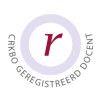Ward van der Houwen is an industrial design engineer with a PhD in medical sciences. His diverse background in product development, and research in the fields of evolutionary morphology, medical devices and the design process explains his combination of practical hands-on making skills and theoretical underpinning.
Ward lets engineers and scientists re-discover intuition and bodily experience as tools in science and engineering. In his teaching he focuses on using intuition, hands-on experience and constructive failing as the main tools in engineering and design.
He is also an inspiring speaker and performing poet, his subjects often being the beauty of technology and (Sovjet) space exploration. The past years he has begun focusing on developing tools for sensitising intuition and experience in the engineering process. One of those tools is the use of poetry to improve creativity and communication.
Vision
Most things around us are made, artefacts. We live in a manufactured world: a man made, imperfect, therefore improvable and understandable system. In everything we do, we make choices that change this system, *because* it is fallible and changeable. And I state: we all have a responsibility within that. As designers we are aware (or should be aware) that the decisions we take in the design process might have far fetching consequences in the way our world works and looks. But not only designers, everyone, carries this responsibility. I find it is my obligation as a designer to empower people to understand the world and to realise their power of change within the world. I try to do this by demystifying technology and science: a first step toward allowing yourself to understand technology. I also do this by showing the personal role of individuals within the design process: how design is a personal endeavour, a fallible, improvable activity.
I show and teach students, and when performing, my audience, to learn to look at our everyday objects and understand how they are produced, what decisions the designer made, where improvements are possible and what we can learn from this design for our own (engineering) endeavours. How we are all engineers and designers in a sense. This way the world becomes our library and every product an ongoing course in making. I do this as well as a consultant within the design teams of healthcare product companies: involve all in the process of creation and share a sense of responsibility.
The responsibility that we have is also a metaphysical one: we are the creators of our artefacts and thus have responsibilities toward their being. Our consumer world requires us to discard the old and buy the new. But what happens? We humans, relate to our products, build relationships with them. Discarding a loyal product that has served for years is like betraying an old friend. I believe that although we do not realise this, this is subconsciously the case, and that by discarding the old, we cope with desensitisation: a hardening of the soul. It does not make us happy.
A world in which designers empower people to understand the world of artefacts around us, in which we empower people to cherish these artefacts by learning to repurpose them, repair them and pass them on, that is my vision.


